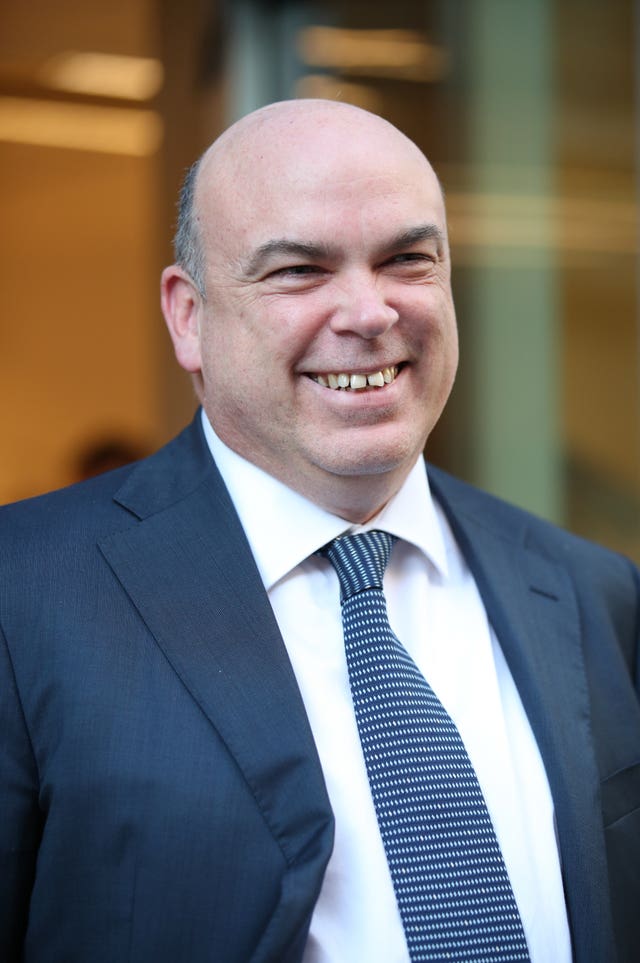
Lewis Goodall 10am - 1pm
22 August 2024, 10:14

The tech tycoon scaled the heights of the business world by founding software giant Autonomy, before a massive lawsuit threatened his reputation.
Mike Lynch was frequently described as the Bill Gates of Britain for founding Autonomy – one of the biggest software firms on the planet – in 1996.
He seemed to live up to the moniker when he negotiated an 11 billion US dollar (£8.64 billion) sale of Autonomy to Silicon Valley pioneer Hewlett Packard (HP) in 2011.
The deal generated a more than 800 million US dollar windfall for him, but it also kicked off a 13-year legal saga which became one of Silicon Valley’s biggest ever trials.

It was only in June this year that Mr Lynch was cleared of charges alleging he orchestrated a fraud and conspiracy leading up to the deal, which turned into a costly albatross for HP.
He faced more than 20 years in US prison if convicted, and the Times newspaper reported that he spent 13 months under house arrest awaiting the trial.
Being accused of a massive fraud represented a dramatic turn in fortunes for Mr Lynch.
Born in Ilford in east London, he was brought up in Essex but had Irish heritage.
He was the son of a nurse from Co Tipperary and a fireman from Co Cork and talked in a 2015 radio interview of spending childhood summers in Carrick-On-Shannon and Tipperary where he had family.
Mr Lynch went to Cambridge University, and started his first business while studying for a PhD in signal processing and communications research.
The company, Lynett Systems, produced audio products for the music industry including electronic synthesisers and samplers.
Mr Lynch was an occasional musician himself. He told the Times in July that he had always played the tenor saxophone.
His doctoral thesis, meanwhile, is reportedly one of the most widely read research pieces in the Cambridge University Library.

In 1991, he started his second business, Cambridge Neurodynamics, which specialised in fingerprint recognition and reportedly sold its machines to South Yorkshire Police, among others.
Autonomy grew out of that company – but its success vastly overshadowed what came before.
The firm was a pioneer of business data analysis, using machine learning and what Mr Lynch called “adaptive pattern recognition”.
It used a statistical method called “Bayesian inference” at the heart of its software, devised by the 18th-century mathematician Thomas Bayes.
Autonomy was an immediate success. It floated in Brussels in 1998, and rode the technology boom around the turn of the millennium. In 2000, it gained listings on both the US Nasdaq exchange and later the London Stock Exchange.
When the tech bubble burst, Autonomy struggled, dropping out of the FTSE 100. But the company was already profitable, unlike many other tech firms at the time, and rode it out.
Over the next decade, it continued to grow and served vast swathes of the businesses world, with clients reportedly including Shell, BMW, the UK Parliament and several US government departments.
Mr Lynch was made an OBE for services to enterprise in 2006. That same year, he was appointed to the board of the BBC, and was later elected to then-prime minister Lord David Cameron’s council for science and technology in 2011.

He advised Lord Cameron on subjects including “the opportunities and risks of the development of artificial intelligence (AI) and the government’s role in the regulation of these technologies”.
Mr Lynch was also elected a Fellow of the Royal Society in 2014.
Autonomy wasn’t his only business success. After selling the software firm in 2011, he became a founding investor in Darktrace, the FTSE 100 cyber security company.
But for most of his last 13 years, Mr Lynch was fighting to clear his name, fiercely denying he did anything wrong while painting HP as a technological train wreck.
In 2023 he was even extradited to the US, where he was reportedly kept under 24-hour armed guard to ensure he did not leave the country.
He later told the Times: “I’d had to say goodbye to everything and everyone, because I didn’t know if I’d ever be coming back.”
The acquittal vindicated the 59-year-old, who left the court a free man on June 6. He boarded the yacht where he was last seen alive just two months later.
The yacht’s name, Bayesian, harks to the same model that was at the heart of Autonomy’s – and Mr Lynch’s – success.